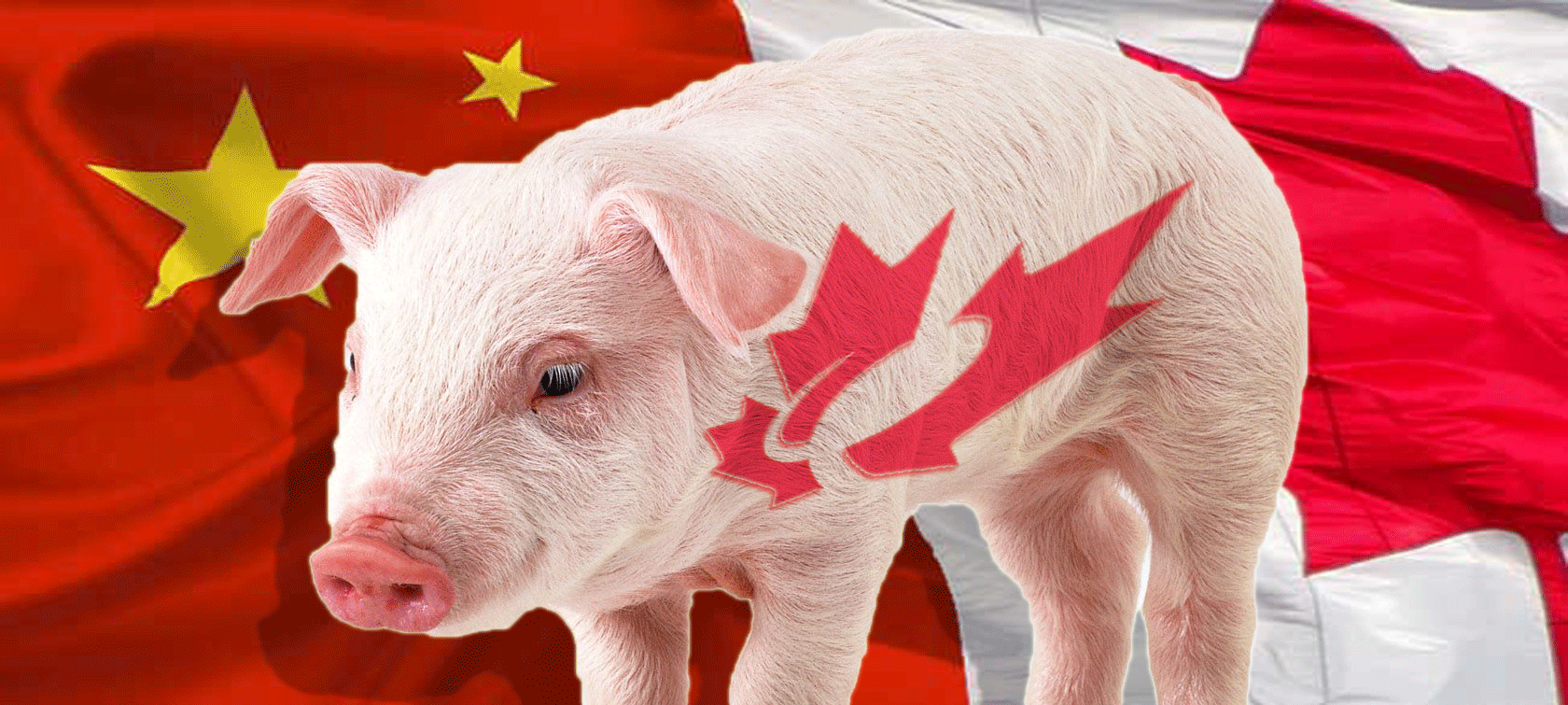Canada’s Pork Exporters Expect a Bumper 2020 Due to China’s ASF Pandemic

Canada’s largest exporter of pork products to China expects shipments to the Asian nation to jump as much as 60 per cent next year amid renewed access to the market and a sharp increase in demand due to African swine fever
by Naomi Powell – Post Media
The sunny outlook comes after a year of unprecedented swings in the fortunes of pork producers, who saw exports to China surge to record levels only to collapse when the country imposed a suspension on all Canadian meat in June.
China, the world’s largest consumer of pork, lifted its suspension in early November during the ongoing outbreak of African swine fever — a highly contagious pig disease that is expected to wipe out more than half of the country’s herd.
“Prices have basically boomed in China because of the shortage so there’s going to be a lot of volatility in that market. We’re just going to have to deal with that”
“From the day it was announced, business basically went full speed ahead,” said Richard Davies, senior vice president of sales and marketing at Quebec based Olymel LP, Canada’s largest supplier of pork to China. The Saint-Hyacinthe, Que.-based company has four plants in Quebec exporting to China and will add a fifth when the acquisition of pork producer F. Menard closes in January.
“We have never, ever experienced this type of shift in supply and demand. They’re basically outpacing most of the other markets and they’re trying to access as much meat as they can moving forward, whether it’s from us or others.”
Olymel’s plant in Red Deer, Alberta had its export permit to China suspended in May due to labelling problems. By late June, Beijing halted all purchases of Canadian beef and pork after Chinese customs authorities reported residue of the feed additive ractopamine in a batch of products. Ractopamine is used in some countries to make leaner hogs, but it is not allowed in China.
For Canadian pork farmers, the suspension derailed what was on course to be a record year in which exports to China were expected to double. Indeed, the value of Canadian pork shipments to the country — $514.3 million in 2018 — had already shot to $419 million by June, when the suspension was issued.
“China was looking like it’d be a billion dollar market for us in 2019, but I don’t think it’ll get there now,” said John Ross, executive director of the Canadian Pork Council.
Nevertheless, the turnaround since the meat ban was lifted has been significant, he said. China, which consumes as much as 50 million tonnes of pork annually, is believed to be short between 20 million and 30 million tonnes of the meat. World exports of pork amount to just 10 million tonnes, one million from Canada.
Canadian producers are reporting the same level of demand experienced by Olymel, Ross said, though official statistics for the period won’t be available until the end of January.
“The way it’s looking, these conditions are likely to continue for the next 2 or 3 years or however long it takes China to recover from African swine flu,” Ross said.
The Chinese shortage is significant enough that Davies says he doesn’t fear increased competition if Beijing completely removes the tariffs it imposed on U.S. producers as part of its trade dispute with Washington.
With the Lunar New Year holidays approaching and the meat shortage forcing consumers to pay more as the Chinese economy slows, Beijing this week announced a tariff drop that will cut levies on U.S. pork to 68 per cent from 72 per cent. It will also release 40,000 tonnes of pork from its strategic reserve to keep prices in check — too little to make much of a dent on demand, Davies said.
“In the context of 45 to 50 million tonnes of pork consumed a year, they’ll consume that on a Monday morning,” Davies said. “Prices have basically boomed in China because of the shortage so there’s going to be a lot of volatility in that market. We’re just going to have to deal with that.”
African swine fever is more likely to spread in the winter, when cold temperatures make biosecurity measures, including the cleaning of trucks and boots, more challenging, said Christine McCracken, a senior analyst at Rabobank in New York.
With new outbreaks of the virus expected to take place in northern China over the coming months, China’s search for more supply is unlikely to flag anytime soon, she said.
“There will be more than enough demand for all exporters to continue at record levels through 2020 and well above historical levels in 2021,” she said.
That doesn’t mean Olymel will jump to add capacity to its operations, Davies said, given capital costs and outstanding questions about how much China will rely on imports in the future. Olymel’s purchase of F. Menard — responsible for about 15 per cent of production in Quebec — was in the works for three years before it was announced this year.
Olymel exports 400,000 tonnes of pork annually — nearly a third of which goes to China. The firm will likely hit that level again this year, despite the four-month permit suspension, he said.
“This year if it wasn’t for the China suspension we would have surpassed that by far,” he said. “So I could easily see us do over 200,000 tonnes in 2020.”
He would however, like to see the import permit reinstated for Olymel’s Red Deer plant which remains under suspension.
“We’re a little surprised it hasn’t happened yet,” he said. “We’re ready to go and we know China is in need of product so I’d say all the conditions are favourable to get a green light.”
Post Media











